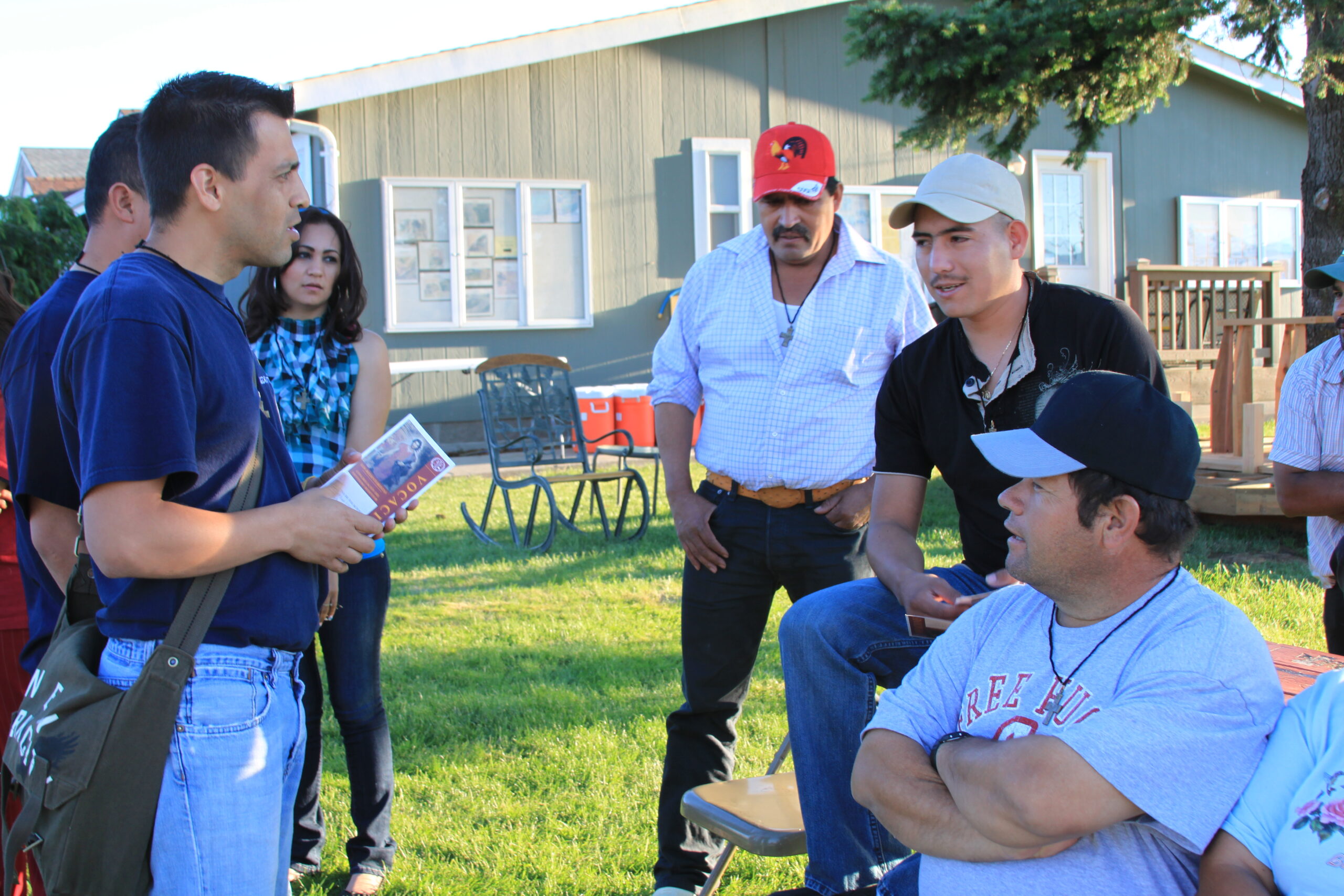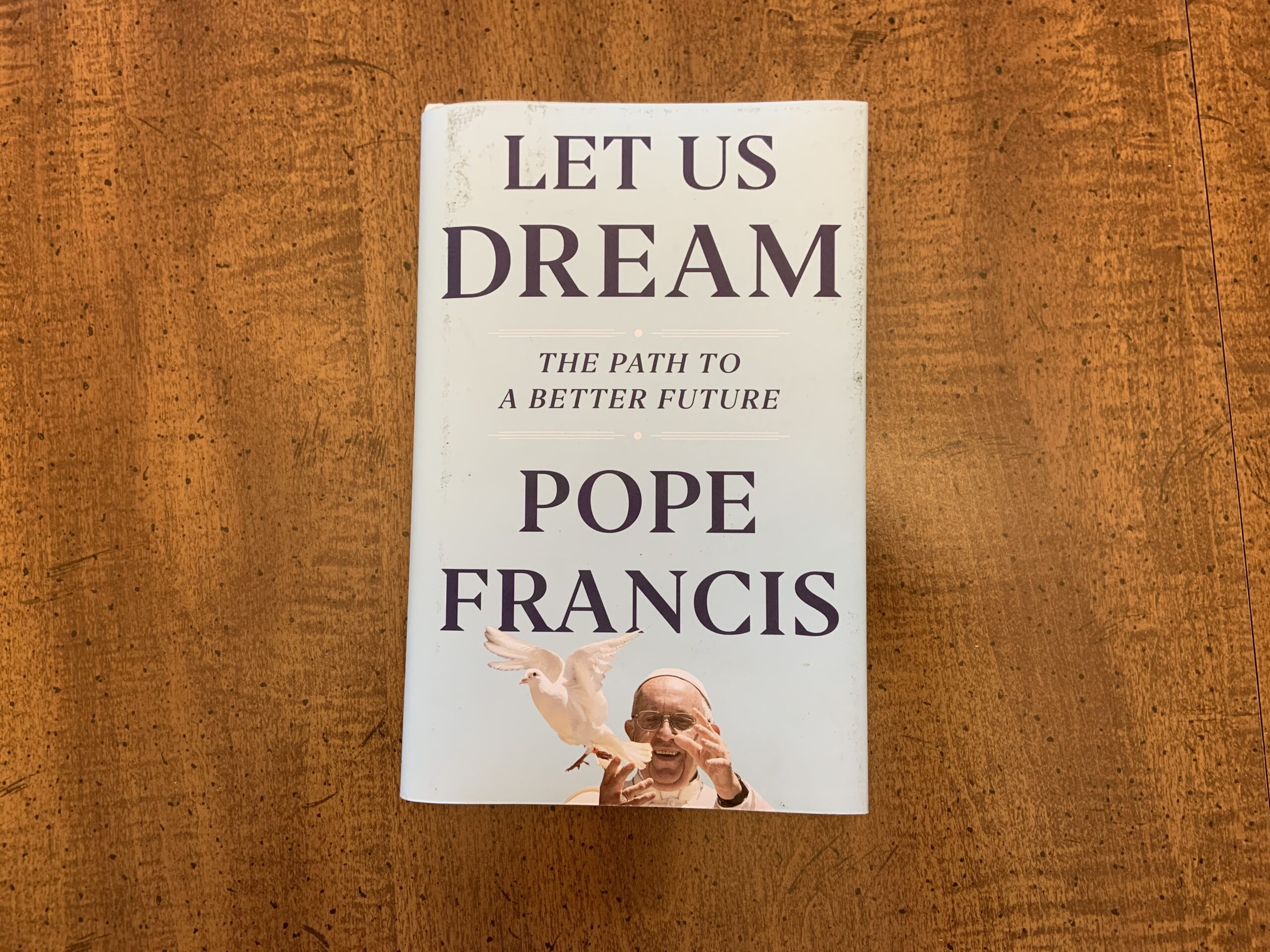Homily/Homilía for XXV Sunday
“Your ways are not my ways…”
(To be evangelized is a lifetime pursuit for people of faith. The Sunday homily is an important part of our taking time for spiritual reflection. It is not my custom to read a homily, but I hope to use my Saturday blog not so much as a homily as preparation of the Word, for migrants and volunteers in migrant ministry.)
In today’s first reading, God says: “Your ways are not my ways…and my ways are not your ways.” As God pronounces these words to the prophet, we can see the same message in the parable that Jesus tells in today’s gospel. The workers who came to work in the early hours of the morning were offended when they saw that those who came late in the day were paid the same wage. Jesus was not changing the laws given by God, but he challenged religious leaders in their smugness and their lack of compassion, especially for the poor. Jesus ways were not those of the Pharisees and religious leaders of Israel. The lessons of the parables called on the disciples to see things in provocative ways, challenging ways.
Sometimes we need to be reminded to look a bit deeper into the things happening around us to see the will of God. Many people want to see things return to normal. We are frustrated with the crisis of the COVID19 pandemic. Some have faced severe hardship in the loss of health and loved ones, but many untouched physically by the pandemic are upset with the inconveniences caused by the pandemic, and appear to only want the way things were than seeking to make both the old ways and new ways better.
The longer this goes on, the more that we realize that we may never have the “old” normal. We are unsure of what the new normal will be. My life for the last twenty-five years has been accompanying migrants and immigrants for whom the old normal was not so great. For the poor, there were many injustices, many barriers to gaining a secure life, and even a lack of spiritual help, as Pope Francis notes that the greatest injustice faced by the poor is the lack of spiritual care given to them. He says that they seldom hear the word of God and often are separated from the sacramental presence of Jesus in their lives.
Where will we find hope? We need to seek the ways of God, rather than our ways. This has been an unusual time in ministry. I am a missionary, a priest who is not assigned as a pastor or an associate in a parish. A bishop has asked me to preach missions in his diocese and share my experience of working with migrants with various groups in his diocese. What struck me most in his request was when he said, “I want you to show our people your joy and hopefulness as a priest and missionary.” The message of the faithful follower of Jesus is not to see difference of God’s ways from our ways as depressing, but as animating us to have more hope and joy.
There are many who think that working with the poor is hard and depressing, but that has not been my experience. Even in the midst of hardship and sorrow, the poor demonstrate faith. There is always hope for better days ahead. The hardship of crossing a desert to enter the United State does not discourage those with confidence that what lies ahead is better than what one was left behind. As God’s ways are not our ways, the way of the migrant is not a way of hopelessness but one of confident joy.
May we begin to seek the new normal in our world with the joy and hope of the migrants of the world.
“Tus caminos no son mis caminos …”
(Ser evangelizado es una búsqueda de por vida para las personas de fe. La homilía dominical es una parte importante de nuestro tiempo para la reflexión espiritual. No es mi costumbre leer una homilía, pero espero usar mi blog del sábado no tanto como una homilía como preparación de la Palabra, para migrantes y voluntarios en la pastoral migrante).
En la primera lectura de hoy, Dios dice: “Mis pensamientos no son los pensamientos de ustedes.Tus caminos no son los míos”. Cuando Dios pronuncia estas palabras al profeta, podemos ver el mismo mensaje en la parábola que Jesús narra en el evangelio de hoy. Los trabajadores que llegaron a trabajar en las primeras horas de la mañana se sintieron ofendidos al ver que a los que llegaban tarde se les pagaba el mismo salario. Jesús no estaba cambiando las leyes dadas por Dios, pero desafió a los líderes religiosos en su presunción y su falta de compasión, especialmente por los pobres. Los caminos de Jesús no eran los de los fariseos y líderes religiosos de Israel. Las lecciones de las parábolas llamaban a los discípulos a ver las cosas de manera provocativa, desafiante.
A veces necesitamos que se nos recuerde mirar un poco más profundamente en las cosas que suceden a nuestro alrededor para ver la voluntad de Dios. Mucha gente quiere que las cosas vuelvan a la normalidad. Estamos frustrados con la crisis de la pandemia de COVID19. Algunos han enfrentado graves dificultades por la pérdida de la salud y la pérdida de sus seres queridos, pero muchos que no han sido afectados físicamente por la pandemia están molestos con los inconvenientes causados por la pandemia y parecen querer solo como estaban las cosas en lugar de buscar hacer tanto las viejas formas como las nuevas. maneras mejores.
Cuanto más se prolonga esto, más nos damos cuenta de que es posible que nunca tengamos la “vieja” normalidad. No estamos seguros de cuál será la nueva normalidad. Mi vida durante los últimos veinticinco años ha sido acompañar a inmigrantes e inmigrantes para quienes la vieja normalidad no era tan buena. Para los pobres, hubo muchas injusticias, muchas barreras para obtener una vida segura e incluso una falta de ayuda espiritual, ya que el Papa Francisco señala que la mayor injusticia que enfrentan los pobres es la falta de atención espiritual que se les brinda. Dice que rara vez escuchan la palabra de Dios y que a menudo están separados de la presencia sacramental de Jesús en sus vidas.
¿Dónde encontraremos esperanza? Necesitamos buscar los caminos de Dios, en lugar de nuestros caminos. Este ha sido un momento inusual en el ministerio. Soy un misionero, un sacerdote que no está asignado como pastor o asociado en una parroquia. Un obispo me ha pedido que predique misiones en su diócesis y comparta mi experiencia de trabajo con migrantes con varios grupos en su diócesis. Lo que más me impactó de su solicitud fue cuando dijo: “Quiero que le muestres a nuestro pueblo tu alegría y esperanza como sacerdote y misionero”. El mensaje del fiel seguidor de Jesús no es ver la diferencia entre los caminos de Dios y los nuestros como algo deprimente, sino que nos anima a tener más esperanza y gozo.
Hay muchos que piensan que trabajar con los pobres es difícil y deprimente, pero esa no ha sido mi experiencia. Incluso en medio de las dificultades y el dolor, los pobres demuestran fe. Siempre hay esperanza de mejores días por delante. La dificultad de cruzar un desierto para entrar a Estados Unidos no desanima a quienes tienen la confianza de que lo que está por delante es mejor que lo que se dejó atrás. Como los caminos de Dios no son nuestros caminos, el camino del migrante no es un camino de desesperanza sino de gozo confiado.
Que comencemos a buscar la nueva normalidad en nuestro mundo con la alegría y la esperanza de los migrantes del mundo.




